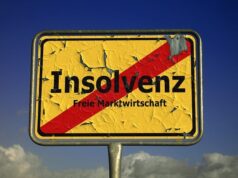
It is the longest auction to date in the history of the Federal Network Agency. Four companies offer the 5G mobile licenses. Here, a newcomer screws the prices up.
There were 224 bidding rounds at the longest mobile phone auction nine years ago. Meanwhile, it is in the current so-called 5G auction more than 300 rounds. The record revenue of nearly 100 billion DM, ie around 50 billion euros, at the historic UMTS auction from the year 2000 should not be cracked this time. Currently, the sum of the bids is still below the six-billion-euro mark.
Criticism of excessive royalties
Recently, there was criticism – especially from the opposition – to the excessive royalties from their point of view. Because the money is missing afterwards the net operators with the structure of the nets. Hans Dieter Schotten, a professor at the German Research Center for Artificial Intelligence (DFKI), is not surprised by the outcome of the auction. „The six billion euros were in fact an order of magnitude that experts in the field considered to be realistic.“
Federal Finance Minister Olaf Scholz calculated according to Handelsblatt before the auction starts with revenues of up to five billion euros. This limit is indeed exceeded, but also not yet clear.
„We would much rather put this money in addition to new mobile stations as in license certificates,“ said Vodafone Germany boss Hannes Ametsreiter the „World on Sunday“. That a participant in the auction is interested in the lowest possible fees, is probably in the nature of the matter. „There is no reason to be alarmist now,“ says expert Schotten from DFKI.
„Rising revenues will not be detrimental“
The Bundesnetzagentur defends the procedure of the auction, which it considers transparent. It is unlikely that rising revenues will be detrimental to grid expansion. „We have ambitious requirements for network expansion, bidders know that they have to invest after the auction and can take this into account in their bidding,“ says President Jochen Homann.
By the end of 2022, for example, at least 98 percent of households per federal state must be provided with at least 100 Mbit / s. „Orienting yourself to households was a misconception, which means that you end up in dead spots in Germany again and again,“ criticized Reinhard Houben, spokesman for the economic policy of the FDP parliamentary group. He calls for a conversion to the area – regardless of colonization.
The Federal Network Agency argues that the frequencies now being auctioned are technically not suitable for surface expansion. President Homann, however, indicates a change in the supply requirements in the future: „In just a few years, area frequencies will be released and we will once again define conditions for their supply.“
1 & 1 Drillisch soon fourth mobile operator?
Special attention is paid to the role played by 1 & 1 Drillisch during the auction. Behind this is the company United Internet of medium-sized enterprise Ralph Dommermuth from the Westerwald. So far he has not operated his own network, but rented in foreign networks. But currently the company holds several highest bids on the 41 frequency blocks.
Schotten from DFKI says it seems like a serious effort by 1 & 1 to become Drillisch, becoming the fourth network operator. Whether this also reduces the mobile phone prices is still unclear. It may be possible to create niche offers that did not exist before. „More providers lead to lower prices, better service and more technology innovations than fewer providers,“ United Internet boss Dommermuth told the newspaper „Welt“.
Own 5G networks for the industry
In a second step after the auction, industrial companies will be able to compete for their own frequencies in the second half of 2019. They get – without an auction, but for a fee – assigned by the Federal Network Agency. You can then build your own networks on the premises. This is the so-called campus solution. „Investors are currently looking forward to this unique development in Germany,“ says Schotten.
The allocation for local industrial networks had been heavily criticized by the network operators in advance. They would rather have used the frequencies themselves. It is quite possible, however, that Telekom and Co will at least operate these so-called campus networks on behalf of the industry. So it could come to new role distributions.



